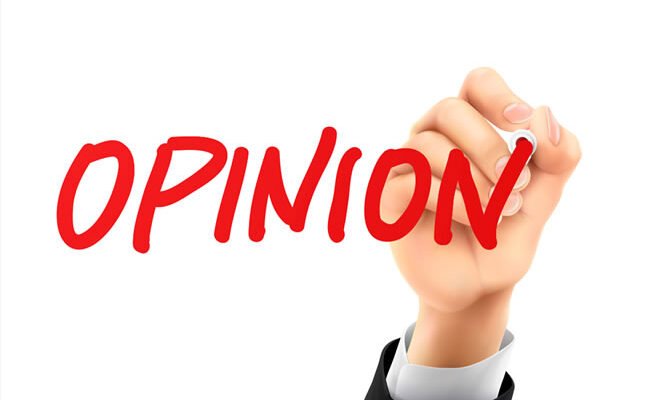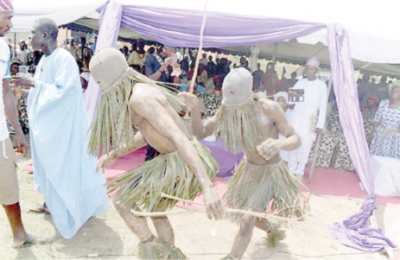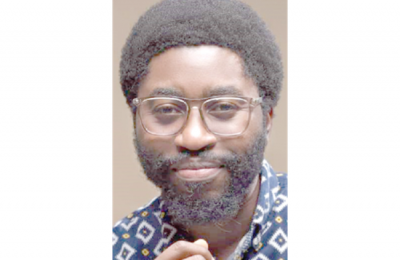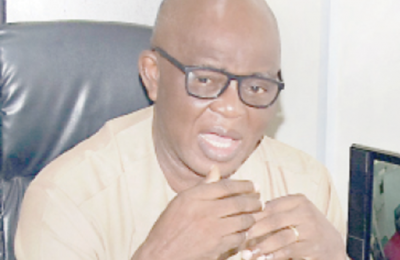SATURDAY, October 1st, 1960, marked a watershed moment in Nigeria’s history—a day when we dismantled the chains of colonialism and embraced self-governance. John F. Kennedy, the 35th President of the United States, couldn’t have nailed it any better when he said, “The great revolution in the history of man, past, present and future, is the revolution of those determined to be free.” The hopes were high, with citizens looking forward to a future that promised growth, prosperity, and unity. However, 64 years later, the promise of independence remains largely unfulfilled. As the nation takes stock of its journey since 1960, we are reminded of the crises that have shaped its trajectory. The 1962/1963 census crisis, which paralyzed the federal parliament, was a foretaste of deeper issues in our governance structure. The political unrest, thuggery, and violence that marred elections in 1964 and 1965 left scars on the nation’s democratic experiment, particularly the infamous “Operation Wet E” incident in the Western Region. Looking back, recent years’ economic and social indicators, especially post-2015, show that Nigeria’s path remains perilous. Despite being Africa’s largest oil producer and possessing an estimated 37 billion barrels of crude oil reserves, the benefits of this wealth remain elusive for the average Nigerian. According to the World Bank, 40 per cent of Nigeria’s population (about 104 million people) still lives below the poverty line, and the poverty rate continues to climb due to economic stagnation, inflation, and unemployment.
Moreover, despite the Nigeria Bureau of Statistics (NBS) reporting a 4.1 per cent unemployment rate, this figure downplays Nigeria’s economic situation. The new methodology, which counts those working as little as one hour weekly as employed, has been criticized for concealing the more profound unemployment crisis. In contrast, KPMG projects a far more concerning 40.6 per cent rate for 2024, reflecting the widespread informal and underemployment. This is particularly alarming as 60% of Nigeria’s population is under 25. Many young Nigerians face bleak job prospects and limited opportunities despite obtaining degrees. The result is a generation that increasingly depends on precarious means of survival, including social media handouts, online scams, or engaging in the informal sector. As we reflect further, Nigeria remains one of the most unequal societies in the world. A report from Oxfam states that the wealthiest 1 per cent of Nigerians control 23 per cent of the country’s wealth, while about 93 million Nigerians live on less than $1.90 a day, according to recent World Poverty Clock estimates. Despite the country’s vast natural resources, income disparity widens, exacerbating social tensions and fueling insecurity.
At the same time, infrastructural development remains stunted, especially in critical areas like electricity, healthcare, and transportation. Despite its oil wealth, Nigeria generates just 4,000 to 5,000 MW of electricity, far below the demand of over 28,000 MW for a population of more than 200 million people. This has left millions without reliable power, stunting economic growth and productivity. Additionally, healthcare remains underfunded and understaffed, with Nigeria’s doctor-to-patient ratio standing at one doctor per 5,000 citizens, far below the World Health Organization (WHO) recommendation of 1 doctor per 600 citizens. Despite recent anti-corruption drives, corruption continues to plague Nigeria at every level of government. The country ranked 150th out of 180 countries in Transparency International’s 2023 Corruption Perception Index. Elites siphon off public funds while essential services remain underfunded, leaving the populace to suffer the consequences. The Niger Delta, home to most of the country’s oil wealth, remains underdeveloped and ecologically damaged despite decades of oil exploration.

Energy poverty remains one of Nigeria’s most pressing yet under-discussed challenges. This issue permeates every facet of Nigerian life, and its impact reverberates throughout the economy. Energy prosperity is critical for any nation aiming for development, but without it, we can barely expect to live up to our potential as a people and as an economy.
Energy poverty refers to the lack of access to modern and reliable energy services such as electricity and clean cooking fuels. In Nigeria, approximately 92 million people, nearly 45% of the population, live without access to electricity. According to the World Bank, Nigeria has the world’s most significant energy access deficit. Furthermore, 73% of the population uses traditional biomass, such as firewood, for cooking. These statistics reveal that energy poverty is not just a developmental hindrance but a direct affront to the essential quality of life many Nigerians deserve. The lack of a stable energy supply has grave implications for national growth and personal development. Nigeria’s unreliable energy supply forces businesses to resort to alternative, expensive forms of energy, primarily diesel generators. This increases the cost of production and contributes to the inflationary spiral that raises the price of goods and services. According to a report by the Manufacturers Association of Nigeria (MAN), manufacturers spend an estimated N2 trillion annually on alternative energy sources, which ultimately gets passed on to consumers.
As inflation rises, so does the standard of living, making essential goods and services increasingly unaffordable for the average Nigerian. The price of everything, from bread to transportation, is indirectly linked to the cost of energy. In a country where the minimum wage is still N30,000 per month (Approximately $18.15), energy poverty exacerbates economic inequality, driving millions further into poverty. Energy poverty is also a fundamental reason why many businesses fail to thrive. Start-ups and small businesses—often seen as engines of economic growth—are stifled by erratic power supply, leading to inconsistent production cycles and an inability to compete globally. For young Nigerians, especially those in rural areas, energy poverty deprives them of the opportunity to harness the transformative power of digital technology. The absence of consistent electricity curtails Internet access, online learning, and even essential communications. Beyond the economy, energy poverty has grave consequences for public health and education. In hospitals, unreliable electricity means that life-saving medical equipment often cannot function properly.
Doctors and nurses are forced to operate in conditions far below acceptable standards, compromising patient care. In schools, the lack of electricity stifles innovation and learning, with students unable to access the digital resources they need to compete in a globalized world. Former United Nations Secretary-General Ban Ki-moon aptly stated: “Energy is the golden thread that connects economic growth, increased social equity, and an environment that allows the world to thrive.” In Nigeria’s case, this golden thread is fraying, and unless addressed, it will continue to strangle our developmental potential. The situation calls for immediate action, and the solution is neither as elusive nor impossible as it might seem. Investments in renewable energy sources such as solar power could alleviate much of the energy poverty that currently stunts Nigeria’s growth. Nigeria is blessed with abundant sunlight, particularly in its northern regions. Yet, the nation has failed to harness this inexhaustible resource fully. With proper governmental policies and private sector collaboration, solar energy could provide reliable electricity to millions of Nigerians living in both urban and rural areas.

Take Rwanda as a case study: a nation that has made impressive strides in energy generation through investment in renewable energy. Their approach, focused on expanding solar power access to rural areas, has transformed their energy sector. There’s no reason Nigeria, with its far greater resources, cannot achieve similar success. Rwanda’s commitment to energy reform offers an important lesson: political will, paired with the right strategies, can turn the tide in even the most daunting circumstances.
Moreover, enhancing Nigeria’s energy infrastructure could unlock its potential as an industrial hub in West Africa. With stable power, industries can scale production efficiently and at lower costs. This would attract foreign direct investment (FDI) and create millions of jobs for the unemployed.
Without addressing energy poverty, Nigeria’s aspirations of becoming a significant player on the global stage will remain unattainable. The government must prioritize the creation of a sustainable energy mix that incorporates renewable sources and addresses the endemic failures of the national grid. Only through this can Nigeria hope to break the cycle of poverty, inflation, and stunted growth.
Expanding the energy sector is not merely a matter of economics but a moral imperative. In the words of Nelson Mandela: “Overcoming poverty is not a gesture of charity. It is an act of justice.” Ensuring that every Nigerian has access to reliable and affordable energy is one of the most powerful ways to lift millions out of poverty and put the nation on a path toward sustainable development.
In the current landscape, another pressing issue is the humongous amount of money Nigerians have to pay for Petroleum Motor Spirit (PMS). Despite the economic hardships gripping the nation, where inflation is at an all-time high, and the Consumer Price Index (CPI) continues to rise, Nigerians are burdened with exorbitant fuel prices. Removing fuel subsidies without an adequate cushion for the populace is emblematic of poor economic policy. This burden disproportionately affects the most vulnerable, exacerbating the cost of living and making it harder for citizens to meet basic needs.
Fuel prices have now skyrocketed to an average of N897 per liter, marking a staggering 388% increase in just 15 months under the current administration. This unprecedented rise in fuel costs burdens Nigerians, whose incomes have not seen even a fraction of that increase. If citizens’ incomes haven’t increased by at least half of that—194%—within the same period, it is evident that Nigerians are not only living hand-to-mouth but are now sinking deeper into abject squalor.
This stark contrast between soaring fuel costs and stagnant wages leaves millions of Nigerians trapped in an economic straitjacket where the essential cost of living is unattainable. It fuels inflation across sectors as transportation and production costs rise, pushing food prices and crucial goods beyond the reach of ordinary citizens. According to Trading Economics, a reputable data platform, Nigeria’s inflation rate rose to 26.72%, driven by factors like fuel subsidy removal and devaluation of the naira, which have sharply increased consumer prices. This surge reflects the ongoing economic pressures faced by citizens. In this scenario, high PMS prices fuel inflation further and deepen the cycle of poverty.
Yet, while Nigerians grapple with these economic realities, the government shows little sign of reducing its expenses. The cost of governance in Nigeria remains among the highest in the world, with legislators among the best-paid public officials globally. Despite promises of fiscal discipline, government spending continues unabated, with few, if any, sacrifices from the ruling elite. The disparity between the suffering of the masses and the opulence of those in power is a glaring contradiction that erodes the trust between the governed and the government.
Another critical issue that remains unresolved after 64 years is Nigeria’s elusive nature of free and fair elections. Despite decades of promises and reforms, the country has yet to achieve the electoral standards befitting a true democracy. Irregularities marred the 2023 General Elections, and the Nigerian people felt disappointed as the elections failed to meet their expectations. The Independent National Electoral Commission (INEC), which spent over N300 billion in preparation for the polls, promised transparency and real-time results through its iRev portal. However, on Election Day, Nigerians were disappointed as the portal failed to deliver its promise. Untenable excuses and technical glitches became the order of the day, leading to widespread allegations of vote manipulation and disenfranchisement.
The aftermath of the elections saw a surge in court cases, with numerous candidates challenging the results. While the courts should be the last resort for resolving electoral disputes, they have become Nigeria’s primary avenue for determining election outcomes. Such irregularities in the elections undermine the democratic process, creating a troubling trend. In a genuinely democratic society, the people—not the courts—should have the final say in choosing their leaders. Yet, Nigeria finds itself in a situation where the judiciary plays an outsized role in the electoral process, often deciding the fate of elections long after the voters have cast their ballots.
One of the fundamental flaws in Nigeria’s electoral system is the lack of a runoff provision for candidates who fail to secure at least 50% of the vote. This loophole allows candidates to assume office with only a fraction of the population’s support, creating a weak, easily contested mandate. The result is that Nigeria is frequently engulfed in post-election litigation, with the courts, rather than the electorate, determining the outcome of elections.
Compounding this problem is the failure to resolve election disputes before swearing in elected officials. Governors, lawmakers, and even the President often take office while the courts still contest their election results. This situation gives the incumbent an undue advantage, allowing them to enjoy office benefits. At the same time, the courts are resolving the legal challenges. It also places the opposition at a significant disadvantage, further undermining the credibility of the electoral process.
The judiciary, once seen as the last hope of the commoner, has increasingly become the hope of politicians. As the courts flood with election petitions, they disillusion the ordinary people by seeming more concerned with political expediency than with upholding the principles of democracy. The judiciary’s role in determining election outcomes has created a situation where the people’s voice is secondary to legal maneuvering, and the courts, rather than the ballot box, have become the primary deciders of leadership.
After 64 years of independence, Nigeria remains a giant still crawling under the weight of economic hardship, systemic corruption, and a flawed political system. This great nation’s potential remains untapped, and only through focused reforms, particularly in addressing energy poverty, can we hope to rise to our full stature. It is time for Nigeria to reclaim its promise and set a course for true independence that uplifts its people and fosters sustainable development.
One could eke out hours writing a thesis on the anomalies that have befallen Nigeria since the primordial times of 1960 and still won’t finish writing because it’s an endless tale. However, one thing stands solidly sure: we may be knocked down, but we are not knocked out. There may be blinding darkness now, but the beacon of ceaselessly shining light will no doubt increase to dispel and conquer this wanton darkness.
Finally, let all and sundry be encouraged to remain rigidly resolute and steadfastly strive to be a catalyst for change and not be a beggar for naira and kobo at the meeting tables of perverted leaders. Free yourselves from enslavement and march to financial riches from the rags of obscurity. The freedom train is advancing on the rails, informed by our heroic past. Don’t be political condoms; seek no populist refuge in corruption’s Sodom. Let’s brace up for transformation.
Let’s make up for a change to get an exchange for excellence. Let’s consolidate our strengths and take the chance to stand up to stand out. Let all minds and hearts pulsate and resonate as one. You never know; one day, this giant nation will make a quantum leap into prominence, not only to make significant strides but also to make a quantum leap!
God bless Nigeria, and Happy Independence Day to you all!
- Charles is a political scientist, public affairs analyst, and a member of the Peoples Democratic Party.
Read Also: Sanwo-Olu assures continued support for tertiary institutions







